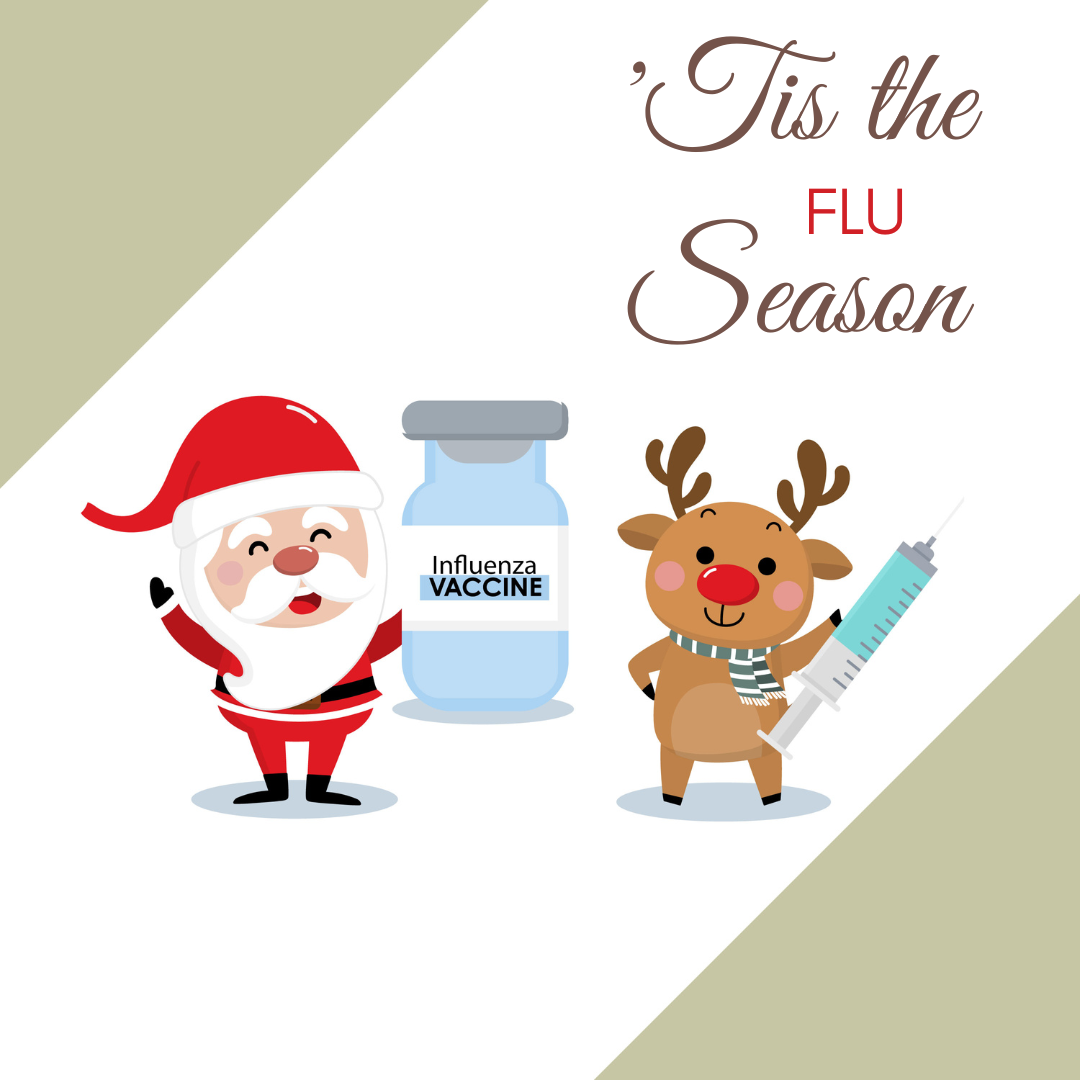‘Tis the (flu) season! Peak flu activity occurs in December and February. That perfectly aligns with Dec. 5-9, 2022, being Influenza Vaccination Week. Speak with us about receiving your shot at your next appointment.
According to the CDC, peak flu activity is in December and February. What we call “flu season” runs from October until mid-spring. (Although, seasonal influenza viruses are detected year-round in the U.S.)
Why We Encourage Patients to Get Vaccinated:
- During 2019-2020, flu vaccination prevented an estimated 7.5 million influenza illnesses, 3.7 million influenza-associated medical visits, 105,000 influenza-associated hospitalizations, and 6,300 influenza-associated deaths.
- During seasons when flu vaccine viruses are similar to circulating flu viruses, flu vaccine has been shown to reduce the risk of having to go to the doctor with flu by 40% to 60%.
But What if You’re Pregnant?
Catching the flu during pregnancy can lead to serious complications.
Women who had healthy immune systems before pregnancy, or who had mild cases of the flu, may not yet see it as a major risk. Pregnancy can cause changes to the immune system, heart, and lung functions, which can make expectant moms more likely to get seriously ill from the flu.
Catching the flu during pregnancy means a higher risk of complications such as preterm birth and serious problems for the baby. Children younger than 2 years old are more likely to end up in the hospital from flu. Babies younger than 6 months are too young to get the flu shot, so receiving mom’s antibodies during pregnancy are their best defense against influenza.
When to get the Flu Vaccine
The flu vaccine can be given during any trimester. Flu seasons vary in their timing from season to season, but flu season is usually October to May. The CDC recommends getting vaccinated by the end of October. This timing helps ensure that you are protected before flu activity begins to increase. Moms who deliver their babies before getting the flu shot should still get vaccinated, because babies remain vulnerable during those first 6 months. Moms who breastfeed may also pass on antibodies through breastmilk.
If You Are 65 or Older
For the 2022-2023 flu season, there are three flu vaccines preferentially recommended for people 65 years and older. These are Fluzone High-Dose Quadrivalent vaccine, Flublok Quadrivalent recombinant flu vaccine and Fluad Quadrivalent adjuvanted flu vaccine. This is sometimes referred to as the “senior flu shot.” The higher dose of antigen is intended to trigger a better immune response and the extra protection that patients 65 and older need. Unfortunately, we do not carry these this year, so we encourage our 65 and older patients to speak to their primary care providers or pharmacists for this year’s flu shot.
Sources: the CDC







